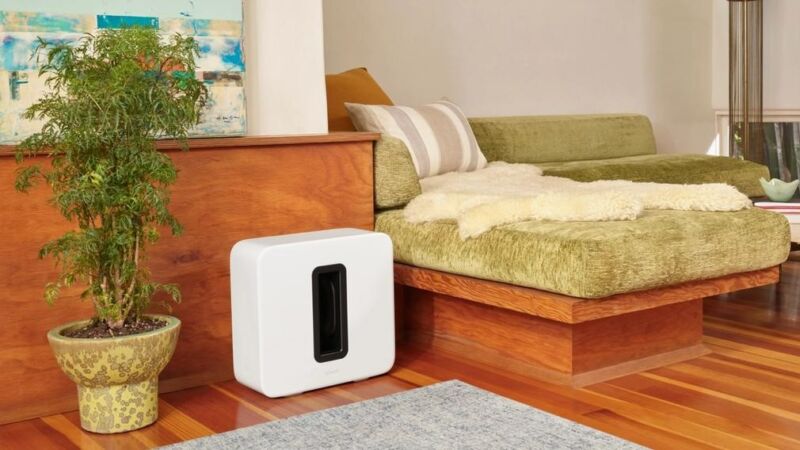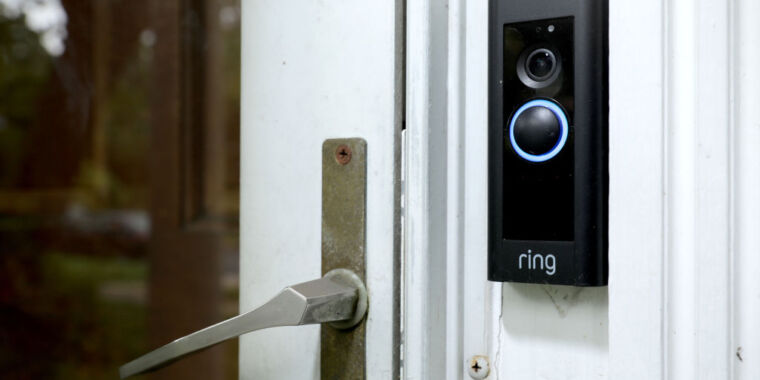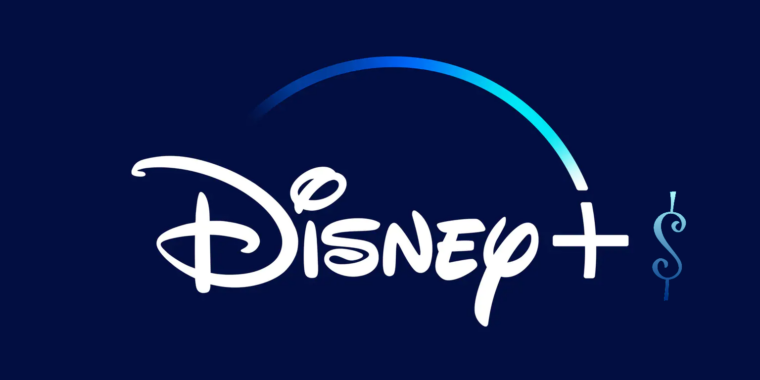
Sonos
The launch of the Sub Mini—an anticipated addition to Sonos’ connected audio lineup—appears to have been delayed, the company revealed after its quarterly earnings report this week.
The device was expected just about any day now. But Sonos confirmed to The Verge on Wednesday that it has “decided to push an anticipated product launch from Q4 ’22 into Q1 ’23,” and it’s all but certain that said product is the Sub Mini. That places its launch in a window between October and December of the calendar year 2022.
The Sonos Sub Mini was apparently first leaked accidentally in the Sonos mobile app. In November, a Reddit user took screenshots of references to its name and general shape. Later, The Verge gained access to images and details about the device, describing it as a cheaper, smaller, cylindrical younger sibling to Sonos’ pricy, rectangular Sonos Sub.
In June, an Federal Communications Commission filing appeared to confirm some of what we’d already seen in leaks about the Sub Mini. Based on the timing of Sonos’ other recent product launches, a filing in June would have meant the device would hit store shelves sometime between July and September—and that fit Sonos’ previous statements about how much it expected to get done in its 2022 fiscal year, which ends in September.
The subwoofer would likely pair well with the company’s two cheapest soundbars, the Beam and the more recently launched Ray. Both are less expensive than Sonos’ Sub, which initially was designed to pair with the company’s ultra-pricey Playbar, but that also fits the newer Sonos Arc soundbar. The leaks didn’t reveal anything about pricing, however.
Sonos made its name with connected speakers that were mainly focused on music playback throughout the home, but over the past few years, it increased its focus on home theater with its Arc, Beam, Ray, Sub, and One products, all of which can work together to provide surround sound.
The company has also emphasized smart speaker functionality lately—first with support for Google Assistant, Alexa, and Siri, and more recently with its own voice control service. When Sonos went public in 2018, its filing and analysts’ assessments named reliance on Google or Amazon’s smart assistant tech as one of the company’s key vulnerabilities.
This week’s quarterly earnings report saw the company underperforming compared to expectations. Executives pointed to difficult market conditions and the effect of inflation on consumers’ spending as the main challenges over the past few months.








